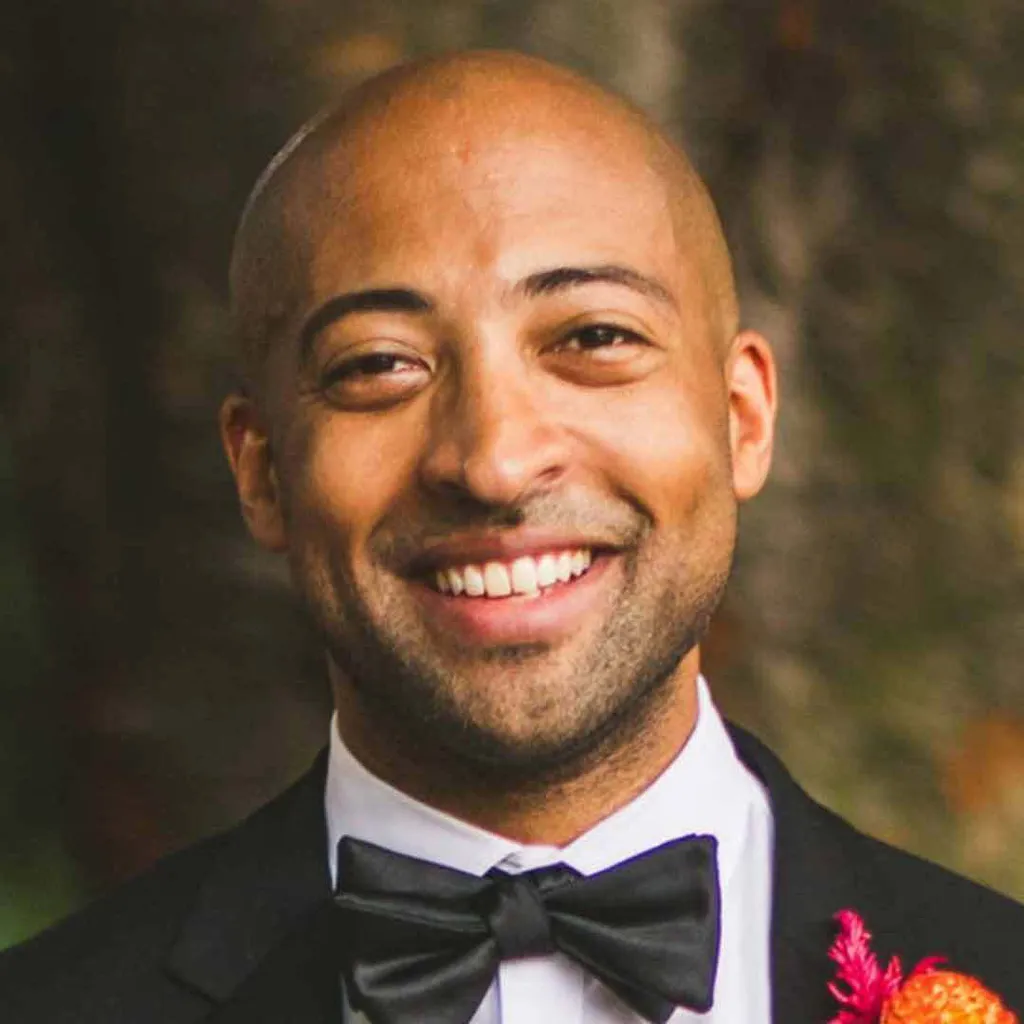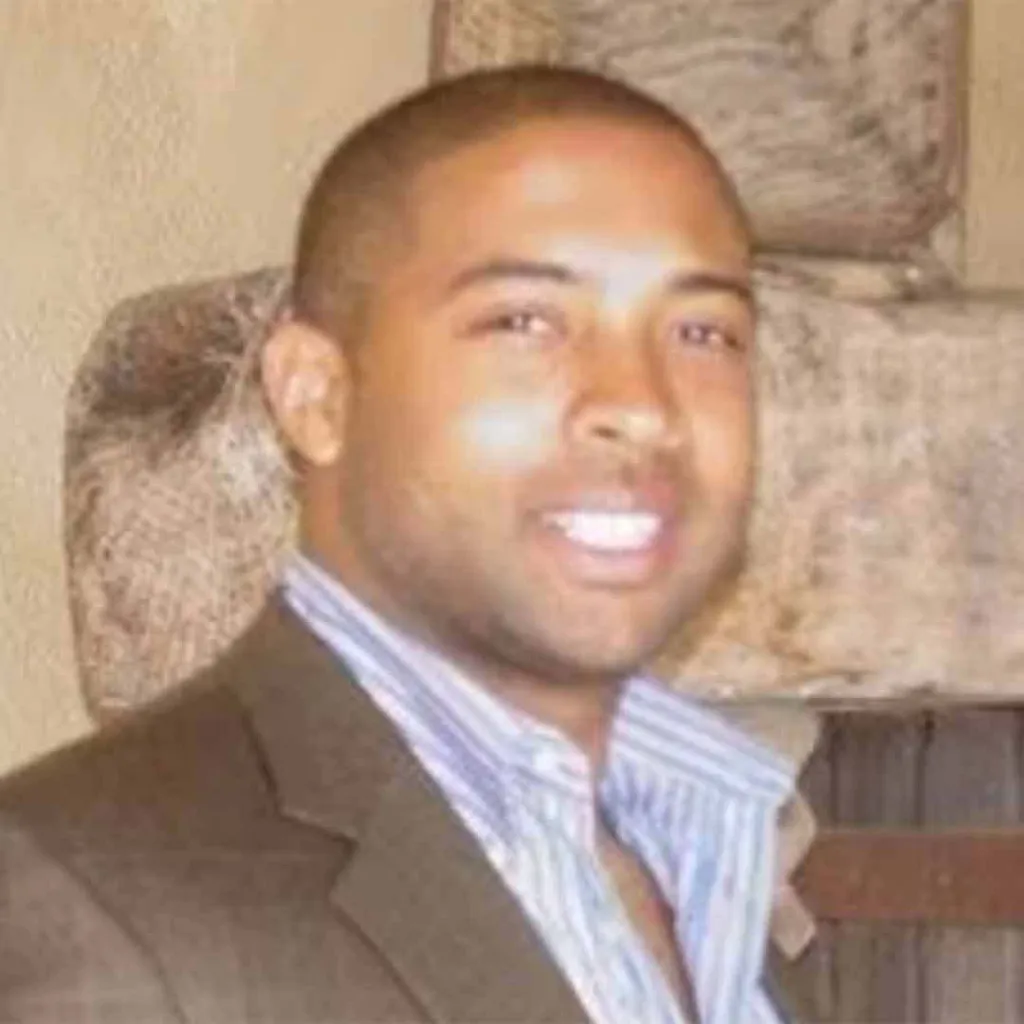- April 29, 2022
- By Annie Krakower
For Thomas ’07 and Harry Alford ’08, the University of Maryland fostered a sense of community both on the lacrosse field, where they won two ACC championships, and in the classroom, where they delved into their heritage in African American studies courses. Now, the twins are helping others experience that brotherhood by paying it forward—in a fearlessly modern way.
This month, the Alfords established the Kay DeBow Alford and Harry Alford, Jr. Endowed Scholarship for Men’s Lacrosse through a $50,000 contribution in bitcoin, the first major cryptocurrency gift to UMD. The commitment, made through the University of Maryland College Park Foundation and named in honor of the brothers’ late parents, will support men’s lacrosse student-athletes from underrepresented backgrounds.
In addition, the Giving Block, a company that accepts and converts crypto donations into dollars for nonprofit organizations like UMD, matched the Alfords’ gift, providing $25,000 for the Alford Family Current-Use Scholarship in honor of Val Skeeter, who served as the director of administrative services in the Department of African American Studies for 25 years, and another $25,000 for the Dingman Center for Entrepreneurship to provide seed funding to student founders.

“If there’s a theme across our lives … it is (working) at the intersection of diversity and innovation,” Harry said. “Whether that is at school or professionally or on the lacrosse field, we like to be trend-setters, but also figure out ways that we can lean forward while also reaching back and helping others at the same time. Cryptocurrency is an engine for that.”
After graduation, the twins drew from their entrepreneurial roots—their parents launched the National Black Chamber of Commerce and opened countless doors for Black-owned businesses—to start their own sports and commerce website, Lacrosse Playground. The brothers were able to scale up and sell the startup just a few years later, and after both earned MBAs, they each entered the financial industry. Harry now manages institutional sales at cryptocurrency exchange platform Coinbase, and Thomas does product marketing at financial services company Oportun.
With that innovation and monetary background, the dive into the crypto world was natural for them.

“The way that we interact and engage with people and money has changed,” Thomas said. “2017, I think, was an inflection point. That’s when Harry and I both jumped in, too: headfirst, over a cliff and building a parachute on the way down.”
They combined that passion for the business world’s cutting edge with their desire to promote inclusion, particularly in lacrosse. After the murder of George Floyd by police in 2020, the twins reached out to men’s lacrosse Head Coach John Tillman and met virtually with the Terps, providing a space for uncomfortable but productive conversations around race. As part of their presentation, which they expanded to other universities’ teams, they recommended more diverse lacrosse hiring and recruiting.
Their gift supports that mission while also opening doors to new ways of donating. Giving crypto is convenient, secure, instant and tax-efficient, said Tiffanie Purvis, director in UMD’s Office of Gift Planning, meaning the donor owes no capital gains tax on an appreciated amount, and they can deduct it on their taxes. The university is now accepting a variety of cryptocurrencies, from bitcoin to ChainLink to Zcash.
“I think (crypto is) something that we’ll continue to see grow, and of course, we wanted to be on the forefront of that—especially since we pride ourselves on innovation here at the university,” Purvis said. “It was important that we looked into this new way of giving to make sure that donors have options.”
The Alfords also see contributions like theirs starting what they call “a ripple effect,” adding to crypto’s credibility and sparking generosity among young investors.
“We hope it’ll encourage more crypto giving,” Harry said, “but we hope it’ll also just inspire people to take action and improve the foundations, the institutions they care about.”
Interested in donating cryptocurrency to UMD? Visit giftplanning.umd.edu/cryptocurrency.
